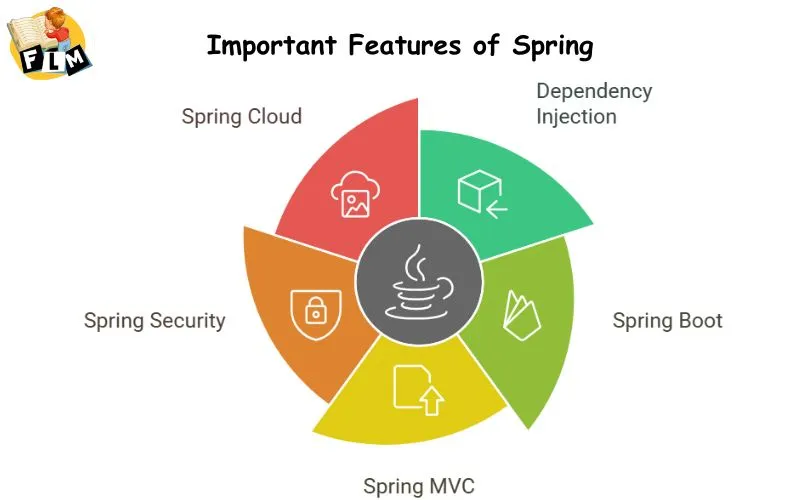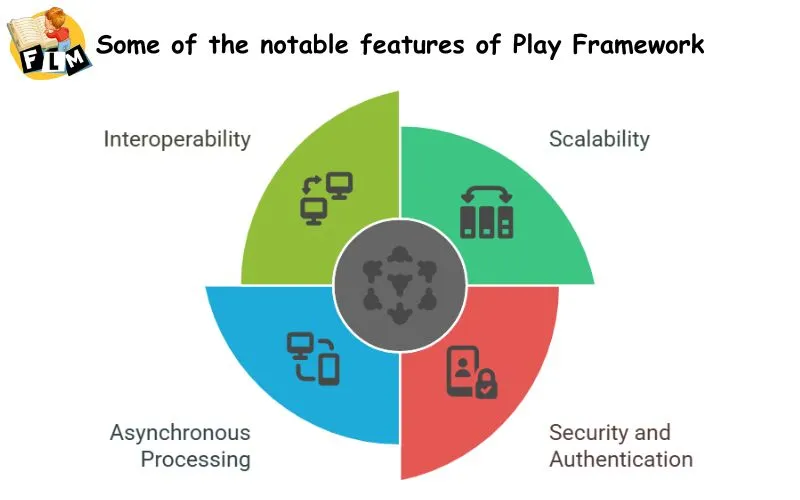Java frameworks play a very crucial role in software development in the modern world since they provide developers with reusable code, existing structure, and pre packaged functionality to help in the creation of applications Web applications, enterprise applications and microservices are some of the applications developed using the appropriate framework In the following content, we present the most successful frameworks in the market with an in-depth guide of Java Frameworks Explained
What Are Java Frameworks
Java framework is an existing software framework that simplifies application development through reusable components, tools, and best practices. While libraries deliver stand-alone features, frameworks dictate the overall application architecture and guide developers on how to write their code
Important Benefits of Employing Java Frameworks
- Reduces development time and effort
- Provides inherent security and scalability
- Enhances code reusability and maintainability
- Encourages optimum software development practices
Let’s have a closer examination of the most popular Java frameworks in detail
Spring Framework – Most Popular Java Framework

Spring is one of the most robust and flexible Java frameworks, extensively used for enterprise applications, microservices, and web applications
Important Features of Spring
- Dependency Injection (DI): Relaxes tight component coupling
- Spring Boot: Reduces deployment and configuration complexity.
- Spring MVC: Enables rapid web application development
- Spring Security: It authenticates and authorizes
- Spring Cloud: It enables microservices architecture
Spring is developers number one choice when they create scalable, high-performance Java applications
Ideal for Database Management
Hibernate is an Object-Relational Mapping (ORM) technology that simplifies database interaction within Java applications
Key Features of Hibernate
- Automatically maps Java objects into database tables
- Suppresses the usage of complex SQL queries
- Includes caching to offer high performance
- Supports several relational databases seamlessly
If you want effective database transactions and effortless data management, Hibernate is a must-study framework
Struts – Enterprise-Level Web Development
Apache Struts is an effective framework for developing enterprise-level web applications with the Model-View-Controller (MVC) pattern
Struts Key Features
- Splits business logic from the UI layer
- Offers a single centralized configuration file
- Eliminates redundancy in web application development
- Supports integration with other Java frameworks such as Spring
Struts is particularly useful for large applications consisting of a structured framework.
JavaServer Faces (JSF) – Simplified UI Development
JSF is a server-side user interface development platform for Java. JSF is ideally suited to be utilized in enterprise applications with dynamic and interactive UI elements
Key Features of JSF
- Provides reusable UI components
- Supports event-driven programming model
- Compatible with backend technologies with ease
- Reduces the amount of JavaScript and HTML coding
JSF is most appropriate for developers who need to create UI-centric applications with less front-end code
Grails – Simplifying Java Web Development
Grails is a strong framework based on Spring Boot that enables rapid web application development It is convention over configuration based, and therefore, simple for beginners
Key Features of Grails
- Groovy-based, which is an interactive Java-like language
- Enables the building of RESTful APIs
- Employs developer productivity via integrated features.
- Supports Integration with no issues at all with Java libraries.
Grails is ideal for developers wanting to employ web applications that are scalable with reduced effort
Play Framework – The Best for Reactive Web Applications

Play Framework is designed to develop high performance web applications that react. It’s based on lightweight, stateless architecture
Some of the notable features of Play Framework
- Provides support for scalability through non blocking I/O
- Security and authentication are integrated with it
- follows an asynchronous model of processing
- Offers transparent interoperability with the new web technologies
Play Framework is optimally suited to develop next-generation web applications that must be extremely responsive and scalable
Quarkus – Java for Cloud -Native Applications
Quarkus is the new Java framework that’s built for Kubernetes, cloud-native, and microservices
Key Features of Quarkus
- Blindingly fast startup times and low memory consumption
- Native GraalVM support for natively compiling Java
- Explicitly built for serverless and cloud-native apps
- Supports native microservices architecture
If you need to develop cloud-native, light applications, then you should learn Quarkus
The Best Java Framework for Your Project
The best Java framework for your project will be based on the application you are creating
- For Web Development: Spring Boot, Struts, or Play Framework
- For Database Management: Hibernate
- For Microservices: Spring Cloud and Quarks
- For UI-Based Applications: JSF and Grails offer excellent UI solutions
Mastering Java frameworks will allow you to choose the correct one for your project requirements
Conclusion
Java frameworks have revolutionized how applications are developed. Whether you’re building a large-scale enterprise application, a web application that has to scale, or a cloud-native service, having the correct framework is important
Now that you’ve read the Java framework tutorial, you now have a thorough grasp of the best-rated frameworks, what they are all about, and what they are best utilized for. Having knowledge of these frameworks will not only make you a more productive coder, but will also grant you more job opportunities within the Java development world
Suggested Articles
- How to Contribute to Open Source Java Projects
- Java Full Stack Development for Mobile Applications
- The Importance of User Experience in Java Applications
Future-Proof Your Career with FLM’s AI-Powered Java Full Stack Development
Java Full Stack Developer Training
Learn Java, Spring Boot, React.js, SQL, and AI automation to build powerful web applications. AI is transforming software development, and companies need skilled Java full stack developers who can integrate AI-driven solutions. This 5+ month live, interactive training will help you master real-world projects, automation tools, and industry best practices
What You’ll Gain?
- High Demand – AI Skills Give You a Competitive Edge
- Earn ₹12 LPA+ with Java Full Stack & AI Expertise
- 100% Live, Expert-Led Training
- AI-Powered Development – Automate Coding & Debugging
- 7 Major & 7 Mini Real-World Projects for Hands-On Experience
- Mock Interviews, Resume Building & Career Guidance
- Exclusive: 2-Year Recording Access for the First 100 Enrollees
- Job-Ready Curriculum with Real-World Applications
Unlock your future with FLM’s AI-Powered Java Full Stack Development — limited seats remaining! Enroll Now
Visit: frontlinesedutech.com | Click Here to Enroll
WhatsApp: 8333077727

